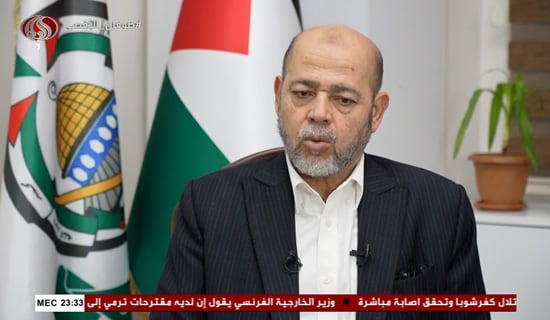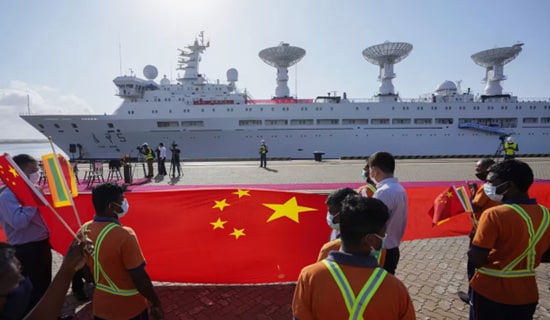In a January 12, 2024 article in the Saudi daily Okaz titled "Is It Better to Establish Relations with the Enemy?", journalist and analyst Fahd Ibrahim Al-Dughaither calls to make peace with Israel and develop economic ties with it as a means to pressure it. As long as Israel exists, he argued, economic ties can be a way to influence its policy without the use of force; moreover, "peace and relations are not a Catholic marriage," he says, so if things don't work out the relations can always be severed. Al-Dughaither adds that peace with Israel can bring about unprecedented growth in the region, and even yield unexpected achievements for the Palestinians – in contrast to the belligerent slogans and the endless fighting of the past decades, which have caused only death and destruction, as is happening today in Gaza.

Fahd Ibrahim Al-Dughaither (Image: Sabaq, Saudi Arabia)
The following are translated excerpts from Al-Dughaither's article:[1]
“When and how does peace with an enemy become beneficial, or [at least] less harmful, and certainly less costly in lives and military [defeat]? Let us examine this question in our region, especially in the context of the Arabs versus Israel. For seven decades of our history there have been devastating wars, and peace agreements that were short lived due to a lack of trust between the sides and the absence of any bargaining chips. The ongoing picture has been one of steady conflict, in which the Arabs gained no significant victories on the ground – with the exception of the 1973 war, which put Egypt in a strong negotiating position, along with the presence of a courageous Egyptian leader, Anwar Sadat, who eventually managed to restore all of his land through negotiations. [Syria’s late president] Hafez Al-Assad could have done the same, but he hesitated at the last moment and the Golan remains in Israeli hands to this very day.
“Today the Arabs’ strength lies in their economic [power] – and I refer especially to the number of Arab consumers and their [considerable] purchasing power, in addition to government contracts with foreign companies. These are advantages that excite any competitive industrialized country. Isael, on the other hand, has industries, advanced technology and agricultural produce, yet it does not export them to us and does not profit from our markets. Therefore, whenever Israel wages war or carries out an attack, it has nothing to lose [in terms of its economic relations] with us. As Arabs and Muslims, it would benefit us to ask [the following question]: As long as Israel exists, how can we diminish the military gap between it and us by economic means? How can the Arab and Muslim summits impose realistic sanctions on Israel that are not [mere] condemnations and criticism?
SUPPORT OUR WORK

“Applying economic measures to [various] countries and entities is a very important [tool]. Have we forgotten what Saudi Arabia achieved by boycotting the products of a certain country in our region?[2]… After mutual trade dropped to an all-time low, [Turkish elements] harmed by the boycott formed political lobbies that pressured their government to remove the reason for the boycott. As a result, the government rushed to do so. Mutual trade returned to the previous levels, and the official relations [between the countries] were not harmed.
“Taking a broader perspective, let us review [the relations between] China and the U.S. The rivalry between these two powers is clear, but they also maintain normal relations and trade. Have you ever heard any American or Chinese leader demanding to sever the relations?... The reason, of course, is the power of the American market to purchase Chinese goods.
“We chose not to do the same after the establishment of Israel in 1948, and later after the summit of the three no’s in Khartoum.[3] We chose not to create within Israel powerful lobbies of traders, industrialists and growers that would have pressured the successive Israeli governments in order to preserve their achievements – as the Turkish traders and growers did vis a-vis their government as the effects of the [Saudi] boycott grew worse. This option will only be feasible, of course, if the wealthy Arab countries, with considerable power to buy and sell goods and services, [choose to implement it]…
“True, Israel has relations and normalization with several Arab countries, but [these relations] have not yielded a sufficient increase in mutual trade, and the reason may be the limited purchasing power [of the Arab countries in question]. But the markets and possibilities of the Gulf countries, and especially of Saudi Arabia, are different, as are those of the large Muslim countries like Malaysia, Indonesia and others. If they establish relations with Israel, and greater mutual trade than exists today, this could increase their power [to pressure Israel].
“I express this view because driving Isael out of the region is almost impossible at the present time, considering who it is that supports it with all its might. Such an Arab and Muslim move vis-à-vis Israel can be different [from what has been done] over the past blood-soaked decades, and may bring the region more [economic] growth than it has known for centuries… Moreover, it may yield unexpected achievements for the Palestinian people themselves, who are always the victims of uncalculated acts of bravura and adventures that are supported by elements that do not care about the [Palestinian] cause, despite their slogans. Suffice it to note that these elements [i.e., Iran and its militias] have helped to kill and expel millions of the people of Syria…
“Peace and relations are not a Catholic marriage, and there are plenty of cases of countries that severed their relations for various reasons when it became essential to do so. It is important to recognize our strengths, enhance them and use them to promote our interests [by means other than] guns, explosions, and painful and failed [military] adventures, like the one currently unfolding in Gaza. For once let us pause and wait, and examine things through a different lens. Let’s block the way to those who profit from the spilled blood of the innocents. Let’s create a different environment and achieve what the slogan-chanters and the pushers of devastating agendas have failed to achieve. What do we have to lose by giving this track a chance?”
[1] Okaz (Saudi Arabi), January 12, 2024.
[2] The reference is to the Saudi boycott of Turkish goods during a period of tension between the two countries following the 2018 assassination of Saudi journalist Jamal Al-Khashoggi in Istanbul.
[3] The reference is to that 1967 Arab League summit in Khartoum, capital of Sudan, whose closing resolution set out the principles known as the three no's: "no peace with Israel, no recognition of Israel, no negotiations with it."




